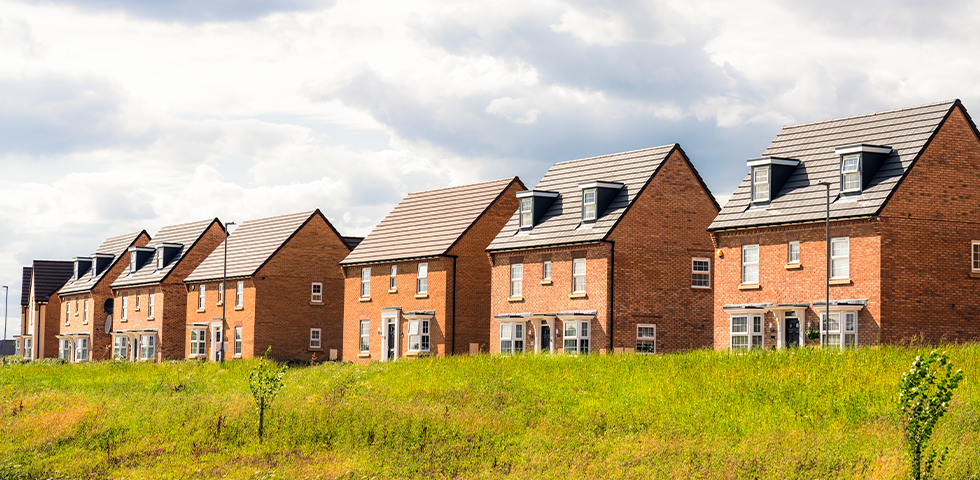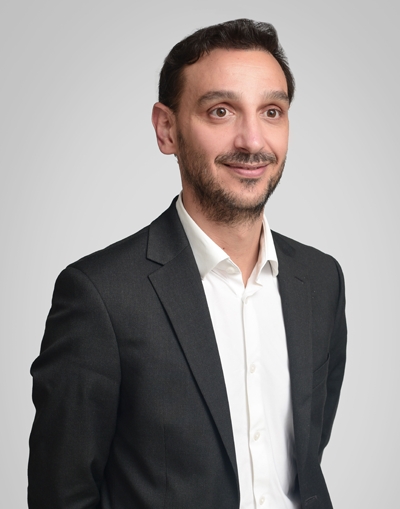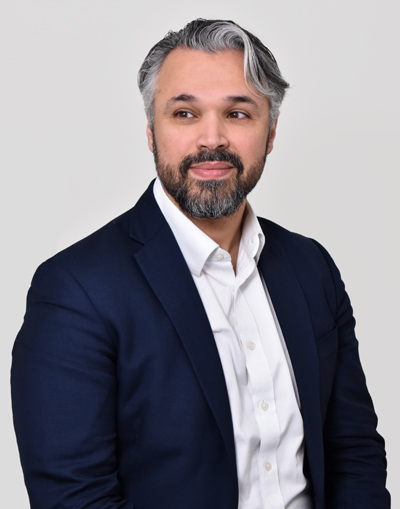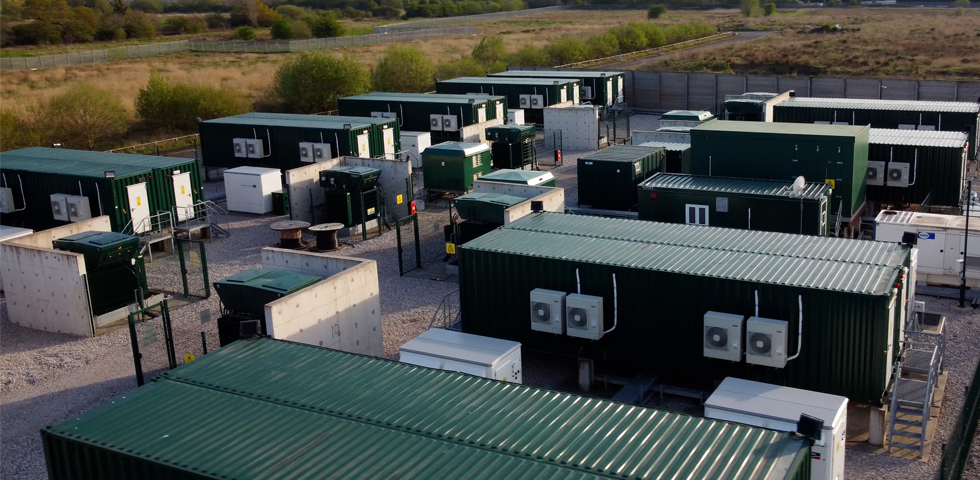Real Assets
Our Real Assets division invests in tangible assets, seeking to provide clients with sustainable yield and long-term capital growth.
Our Real Assets division invests in tangible assets, seeking to provide clients with sustainable yield and long-term capital growth.
This page does not constitute investment advice.
Gresham House’s Real Assets strategies target sustainable yield and long-term capital growth for clients, through investment in a variety of tangible assets.
Gresham House’s Real Assets division encompasses a broad range of asset classes, including Forestry, Renewables, Battery Energy Storage, Housing, Commercial Property, and Sustainable Infrastructure. Real Assets are strategically positioned to offer investors portfolio diversification and the potential for inflation protection through proven, sustainable alternative investments. These investments not only aim to provide potential for uncorrelated returns to equity markets but can also offer diversified sources of income.
What are Real Assets?
Real Assets are tangible assets such as land, buildings, and infrastructure. They are inherently valuable due to their physical characteristics. Investing in Real Assets can be advantageous as they can help to provide a hedge against inflation, generate stable cash flows, and typically present lower risks over the long term. At Gresham House, we focus on real assets that are financially attractive alongside being resilient and sustainable, aligning investment returns with broader economic and societal benefits.
Risks
As with any investment there are risks. While we seek to minimise and mitigate risks, we cannot eliminate those that arise from investing in real assets.
Anyone making an investment is putting their capital at risk. It is important to note that past performance is not an indicator of future returns, and any income from these investments can go down as well as up.
Different real asset investments will have additional risks associated with them so it is important that prospective investors understand any specific risks by reading and understanding fund documentation before investing.
How to invest in Real Assets?
To access real asset investments, prospective investors might consider direct acquisitions, partnerships, or investing in funds that specialise in these assets, such as those managed by Gresham House. We offer investors exposure to a range of real asset portfolios that seek to provide attractive risk-adjusted returns through our team’s specialist and active asset management.
These types of investments generally require significant capital and a deep understanding of the market, underscoring the importance of partnering with experienced experts like Gresham House, who are well-versed in navigating market dynamics alongside meeting and exceeding regulatory frameworks.
Our approach to Real Asset investing
Our approach to investing in Real Assets is characterised by a strong commitment to sustainability, deep market expertise, and a disciplined investment methodology. At Gresham House, we assess Environmental, Social, and Governance (ESG) factors from the perspective of both the level of risk and the potential opportunity to generate attractive risk-adjusted returns. We are committed to active asset management and the continuous monitoring of market trends and regulatory shifts, ensuring that we actively contribute towards addressing some of the largest environmental and societal challenges through our investments.
Our strategies
Forestry 
Our investments seek to deliver attractive risk-adjusted returns through long-term productive, sustainable forestry management.
An allocation to forestry can help to diversify an investment portfolio and offers exposure to potential increases in the value of the timber, carbon credits, natural capital and the underlying land value.
As a leading forestry investor, we take our responsibilities to sustainability and governance very seriously.
New Energy (including renewables and battery storage)
Gresham House has deep expertise in renewables including wind, solar, and battery energy storage (BESS).
We launched the UK’s first battery storage fund in 2018, which is now the largest fund of its type in the UK and possibly Europe.
Our investments in these renewable technologies are pivotal to supporting the transition to a low-carbon economy and responding to the increasing global demand for clean energy, while also targeting substantial returns for clients.
Sustainable Infrastructure 
Significant investment is needed in new Sustainable Infrastructure that can support and accelerate the changes and innovative solutions required to address key environmental and societal challenges.
We believe our Sustainable Infrastructure investments, will deliver strong financial, social and environmental returns alongside supporting the transition to a more sustainable world.
They provide innovative solutions that enable a new, more sustainable, way of living, and can be accessed through limited partnership funds and regional co-investment funds.
Real Estate (UK housing) 
We offer long-term equity investments into UK housing, through listed and unlisted housing investment vehicles, each focused on addressing different areas of the affordable housing problem.
Our investments aim to deliver stable and secure inflation-linked returns for investors while providing social and environmental benefits to our residents, the local community and the wider economy. We focus on three key housing tenures: shared ownership, retirement living and build-to-rent.
In Ireland, we provide value-add investments in commercial property including office, retail and industrial properties in the greater Dublin area and major regional urban centres.
Forestry
Investments comprising the ownership of freehold or leasehold UK land with a growing timber crop.
New Energy
Investments, such as utility-scale battery energy storage and both subsidised and unsubsidised renewables, that support the changing approach to electricity generation.
Sustainable Infrastructure
Investments that support and accelerate the changes required to address key global environmental and societal challenges.
Real Estate - UK Housing
Investments that source opportunities in the strategically important housing market.
Investment team

Rupert has been the Managing Director of Gresham House Asset Management Ltd since September 2015. He is a member of the Group Management and Investment Committees.
Rupert has a proven track record of delivering significant value to shareholders and has over 32 years’ experience in asset management, private banking and wealth management, focusing on product innovation, investment management, business development, banking and wealth structuring.
Before joining Gresham House, Rupert was CEO and CIO of Schroders (UK) Private Bank for 11 years, and spent 17 years at Rothschild, where latterly he was Head of Private Clients for Rothschild Asset Management.

New Energy
Ben has been Managing Director and Head of the Gresham House New Energy division since November 2017.
He is the Fund Manager of Gresham House Energy Storage Fund plc, with assets under management (AUM) of over £500mn, and was, through 2020, also Fund Manager for the British Strategic Investment Fund (BSIF) strategy which grew AUM to £350mn under his leadership.
Ben started his fund management career at Lazard Asset Management in 1994 and worked there for nine years. He later founded Hazel Capital in April 2007, serving as Managing Partner and CIO and which became Gresham House New Energy on the acquisition of Hazel Capital’s business activities in November 2017.
Prior to founding Hazel Capital, he was a co-founder of Cantillon Capital, where he managed a US$1bn equity hedge fund focused on global technology, media and telecom.
Ben currently serves as a director of over 50, mostly project, companies.
He has 27 years of investment experience and holds a BEng in Mechanical Engineering from Imperial College.

Peter is Managing Director of Gresham House’s Sustainable Infrastructure division and Fund Manager for our British Sustainable Infrastructure Fund (BSIF) strategy. He is also a member of the Gresham House Sustainability Executive Committee and the Gresham House Asset Management Board.
Prior to Gresham House, Peter led the investment and exit of the Sustainable Infrastructure-focused Environmental Capital Fund (ECF) for SEP, one of Europe’s most successful VC firms.
With over 22 years of public and private equity investment, development and fund management experience, including two top-decile infrastructure fund exits, he has invested into and exited over 200 infrastructure and technology companies across all sectors with an equity value of over £1.7bn and capital value of c.£5.5bn.
Peter has had board member roles on over 90 investee companies and is a Senior Associate of the Cambridge Institute of Sustainability Leadership (CISL). Peter is also an active investor in early-stage sustainability companies.
He holds a Bachelor of Laws (LLB) with honours and two further Bachelor degrees in Finance (BFin) and Commerce (BCom), all from the University of Adelaide, and is a proud graduate of CISL’s Business Sustainability Management programme.

Forestry
Olly Hughes has been Managing Director and an Investment Committee member of our Forestry division since January 2019. He is responsible for managing the growth and development of Gresham House’s forestry activities including acquisitions, fund and private client management and forestry asset management.
Prior to joining Gresham House, Olly was a Partner and Head of Infrastructure at Oxford Capital for six years where he built and managed a portfolio of over £300mn of solar and wind renewable energy assets. He started his career at ING Barings in 1995 focusing on asset backed structuring and since then has focused his career on real asset investment management.
Olly has over 26 years of investment experience and holds a Bachelor of Arts and a Master’s degree from the University of Oxford in Biological Science. He also obtained the Investment Management Certificate from the CFA Society in the UK.

Ben Fry is Managing Director, Housing at Gresham House. He is the Fund Manager for Residential Secure Income plc and Gresham House Residential Secure Income LP and Managing Director of the two Registered Providers of Social Housing within these funds, ReSI Homes Limited and ReSI Housing Limited.
Ben has worked at Gresham House for 12 years, including via TradeRisks which was acquired by Gresham House in March 2020. Prior to setting up Residential Secure Income in 2017, Ben led TradeRisks’ debt advisory services for housing associations, local authorities, and specialist residential accommodation.
Ben has 18 years of experience in housing, local government and infrastructure and qualified as a chartered accountant with Deloitte. He holds a BSc in Mathematics from Imperial College London.

Mike joined Gresham House in February 2023.
Mike co-founded MedicX Group in 2005 and grew it to become one of the leading UK healthcare investors with over £1.5bn under management when it was sold to Octopus Capital in 2014. Mike then became CEO of Octopus Healthcare before becoming Chairman in 2018. In 2019 he led the £2.5bn all share merger between MedicX Fund and Primary Health Properties.
Mike is a qualified chartered surveyor, holds a BSc in Land Management from the University of Reading and has over 30 years of experience in real estate investment and fund management.
Mike is also the Chairman of Shoreline Partners, a specialist asset manager in the healthcare sector.

Simon joined Gresham House in December 2022.
Simon has over 25 years’ experience in corporate advisory, private equity, M&A, debt advisory, strategic business planning, performance improvement and board governance. He has led over a dozen successful private equity exits and is an experienced non-executive director.
Before joining Gresham House, Simon was a Partner, Head of Portfolio and member of the Investment Committee at Bowmark Capital. He also co-chaired the Exit and Valuations Committees. Prior to that, he was Senior Portfolio Director at Lloyds Development Capital.
Before his career in private equity, Simon spent nearly 20 years as an advisor, initially at KPMG in Birmingham before moving to Deloitte in 2005. At Deloitte, Simon was a Partner and Head of UK regional Corporate Advisory, a business he established to advise fast growing mid-market privately owned and private equity backed businesses across the UK regions.
During his time as an advisor, Simon completed several corporate secondments in board level roles to help companies including a large construction company, multinational airline, global consumer product manufacturer, football league club and UK based listed retailer. He also has extensive international experience, including a two-year secondment to Melbourne Australia with Deloitte. Simon has worked across a variety of sectors, in particular healthcare, education, retail, TMT, infrastructure and construction.
Simon is a Fellow of the Institute of Chartered Accountants (ICAEW). He holds a Bachelor of Social Science (B.Soc.Sc) degree in Money, Banking and Finance from the University of Birmingham.

James joined Gresham House in May 2018, following the acquisition of FIM Services Ltd.
James is Fund Manager of Gresham House Solar Distribution LLP. James takes an active role in the day-to-day management of the fund including reporting, asset management, capital rising, acquisition of new assets and conducting valuations. Prior to joining Gresham House, he worked at J.P. Morgan, RWE Supply and Trading and latterly at Computershare Investor Services as an Equity Dealer, managing a range of global share plans and option schemes on behalf of corporate clients.
James has over ten years of experience in financial services and holds a BA (Hons) in Business Administration from the University of Plymouth. He has also obtained the Investment Management Certificate and is enrolled as a Level II candidate in the CFA program.

Based in our Oxford office, Suzy works in the asset management team for our renewables portfolio. Suzy has been involved in the construction, financing and operational management of over 100 MW of onshore wind and solar assets on behalf of investors.
Previously, Suzy worked as a Senior Investment Analyst for Sun Life Financial of Canada and Lincoln Financial Group.
Suzy holds a first-class BSc (Hons) in Mathematics and Statistics from the University of Bath.

Tom joined Gresham House in June 2021.
He works within the asset management team, covering all aspects of operational forestry for several individual and portfolio clients. He has worked in the UK forestry sector since 2013 and, prior to joining Gresham House, was leading a three-person forest management team covering south west Scotland.
Tom has a BSc in Mechanical Engineering from the University of Cape Town and later went on to gain an MSc in Forest Management from Newton Rigg

Fund Manager; responsible for management of in-forest operations and fund reporting. Post qualification, he worked as a forest manager on the full spectrum of forest activities, with a particular emphasis on adding value through bare land planting. In 2004, he moved to the Forestry Commission where he held various responsibilities including regulatory compliance role over the industry’s private sector. Latterly he was project manager of an IT project, and represented the Forestry Commission on the SEARS (Scotland’s Environmental & Rural Services) programme of organisational change. In 2012 he joined Gresham House Forestry and is one of the teams qualified chartered foresters.

Peter joined Gresham House in January 2021 and is responsible for the unsubsidised renewables and collocation strategy within the New Energy team.
Peter has 14 years’ energy investment experience. Prior to joining Gresham House, Peter was an Investment Director at Foresight Group, where he worked for seven years. Whilst at Foresight, Peter focused on the European renewable energy sector, leading deals across the full project lifecycle (development capital, greenfield, brownfield and exit processes) and actively managing assets post-investment.
From 2012-2014, Peter was part of the Mergers & Acquisitions Team at Gazprom Marketing & Trading, working on power generation, metering and energy supply transactions. He started his career in PwC’s Deals Strategy team, advising financial and strategic buyers in the energy sector.
Peter is passionate about the need for further renewable energy deployment and has a track-record working with developers on complex greenfield projects.
He holds a BA in Geography from the University of Oxford.

James is an Investment Manager at Gresham House. James moved to the New Energy team in 2019 after joining Gresham House in 2018 as part of Gresham House Ventures, having previously been at Livingbridge since 2016.
James’ current role covers a broad range of work across fund management and new investments, primarily focused on energy storage and renewables. Amongst other things he is responsible for modelling for the energy storage fund, both at fund level and for new investments drawing on his experience and understanding of BESS markets. Prior to joining the New Energy team, he worked as an Analyst covering mostly early-stage companies in the Venture Capital and Equity Fund vehicles as part of Gresham House Ventures. This role provided experience with investment decisions across a variety of markets as well as exposure to growth companies and management of quoted investment vehicles.
His career started in TMT audit at EY where he spent three years and qualified as a chartered accountant.
James holds a first-class Master’s degree in Mathematics from Durham University.

Rob joined Gresham House in November 2015. He is a member of the Forestry Investment Committee.
Rob joined the group from Aitchesse Ltd where he was a Company Director for two years and Head of Acquisitions for three years. Prior to joining Aitchesse Ltd, Rob spent five years at CNBC Europe as a technical analyst covering financial news. Following this, he was managing his own consultancy business specialising in carbon management and commercial forestry for two years. Rob has 11 years of investment experience in the commercial forestry sector, investing in the UK and globally.
He holds a Master’s degree in environmental economics from Glasgow University and a Bachelor of Art in engineering from Southampton Solent University.

Graham is an experienced forestry professional, responsible for all operational aspects of the Gresham House forestry funds. After a short period of practical experience in the UK, Sweden and New Zealand, he joined UA Forestry Ltd (a division of United Auctions Group) as a forest manager, progressing to become their managing director in 1997.
In 2001, he left UA to found his own forestry management company, Aspen Forestry Ltd, which specialised in providing forest management services across Scotland. Following the successful sale of Aspen, Graham joined Gresham House in 2007. His specialism is in developing, negotiating and managing non-forestry ‘higher and better use’ investments on behalf of client funds, particularly renewable energy developments, telecom rentals, power line access and compensation and residential developments.

Chris joined Gresham House in August 2023 and is responsible for all aspects of property and asset management for the Group’s UK Housing portfolio.
Most recently Head of Real Estate Strategy and Chief Investment Officer at LifeX Aps, a modern residential operator and technology platform, he was formerly Managing Director and Head of UK at Oxford Properties Group from 2011 to 2019, leading a team responsible for £3 billion of UK assets.
Chris has over 30 years of experience in the real estate industry.

Fernando joined Gresham House in May 2021 and is focused on the design, development and deployment of processes and procedures that allow the New Energy team to increase MW under management each year.
Fernando has 15 years’ experience in the Renewable Energy sector, specifically in the Solar PV industry. Prior to Gresham House, he was Global Head of Technical for a 2.2GW Solar PV portfolio at WiseEnergy (Next Energy Group company), focused on the operation of their Solar PV assets and increasing overall revenues.
Fernando holds a BEng in Industrial Engineering from the University of Castilla-La Mancha and an MSc in Energy and Sustainability with Electrical Power Engineering from the University of Southampton. He also holds a Global Executive MBA from IESE Business School, Barcelona.

Mathangi joined Gresham House in January 2023 and is an Investment Manager in the Sustainable Infrastructure team.
Prior to joining Gresham House, Mathangi worked at an impact venture capital fund in India as an investment fellow where she was responsible for setting up the fund along with building the fund’s investment thesis and deal pipeline. Prior to that she was part of EY India’s Financial Due Diligence team.
Mathangi has seven years of work experience in the industry and is a Chartered Accountant from the Institute of Chartered Accountants of India. She also holds an MBA from HEC Paris with a specialisation in Finance.

Claire joined Gresham House in November 2023 as Director of Shared Ownership Operations.
Claire has worked in affordable homeownership for 14 years, mainly in G15 housing associations, with specialisms including shared ownership and section 106 developments.
She has a wealth of experience in managing large, shared ownership, and leasehold portfolios, with a particular focus on new builds, third-party management contracts, complaints, and service changes. Claire is well versed in Landlord and Tenant Law, Case Law and the RICS service charge code.
Claire holds a BA in English Literature, is a member of the Property Institute, and is an Associate Member of RICS working towards her APC.

Chris joined Gresham House in August 2023.
Chris has over 20 years’ experience in private equity, corporate finance & restructuring, strategic business planning, M&A, performance improvement, and is an experienced non-executive director.
Before joining Gresham House, Chris spent seven years as a Portfolio Director at Lloyds Development Capital where he worked with around 30 businesses across a broad range of sectors including IT services and unified communications, business services, educational support services, construction, manufacturing, logistics and financial services to deliver numerous successful acquisitions and exits.
Prior to his career in private equity, Chris spent 15 years at Deloitte LLP as an advisor to UK mid-market board teams, shareholders, private equity investors and lenders. During this time, Chris also undertook a secondment at a major UK high street lender, gaining first-hand experience of credit and internal banking procedures, debt and security structures.
Chris is a Chartered Accountant (ICAEW) and holds a Bachelor of Engineering degree in Mechanical Engineering from the University of Nottingham.

Wayne is an Investment Director in our New Energy division and has 29 years of technical, commercial, stakeholder and general management experience in the energy sector.
Before joining Gresham House, Wayne served as COO at FIM Services Ltd, and prior to that Wayne was an Onshore Wind Development and Construction Director for RWE Innogy.
He has overseen the construction of 17 wind farms (~400MW) and the sale of 12 wind farms (~200MW) over the past 12 years. He has also represented the industry on aviation matters as a director and vice chair of the Aviation Investment Fund Company Ltd.
Wayne is a Chartered Engineer and has a PhD in Engineering from the University of Sheffield. Wayne is also a registered adviser with the Financial Conduct Authority.

Richard is a Chartered Surveyor whose experience covers all property issues. His expertise includes: complex documentation and due diligence matters, developing and implementing investment schemes – particularly those based on tax-efficient structures – and managing a wide range of investor contacts established through FIM’s investment business. Richard is a registered adviser with the Financial Conduct Authority.

Anthony’s background is in investment banking, having previously worked for international firms in London, New York and South America, including Macquarie and Merrill Lynch. At Gresham House, he is responsible for business development, marketing and sales for our forestry and new energy assets, also managing one of the funds.
Anthony has a BA (Hons) in History from Newcastle University and is an Investment Management Certificate holder. He is also a registered adviser with the Financial Conduct Authority.

Ben Fletcher
Associate Technical Asset Manager

David Gardner has been CIO, Forestry and a member of the Forestry Investment Committee at Gresham House since May 2020.
He joined from Global Forest Partners LP, a US based timber management and investment company, where he worked from 2009 to 2019. David was responsible for developing the company’s international growth as well as supporting the management of the existing forestry investments. While at Global Forest Partners, David served as an Investment Director as well as being a partner and serving on the Investment Committee. Prior to that, he was President of Asia Pacific (Forest Industry) at the international management consulting firm Poyry, based in Singapore.
David has over 30 years of experience in the global forest industry, with the last ten years focused on international institutional investment and asset management in forestry.
David holds a Bachelor of Science, a Master’s degree in Forestry and is an MBA graduate from Cranfield University.

Matthew Giles has been an Investment Director and the Head of the Forestry Asset Management Team at Gresham House since November 2015 following the successful acquisition of Aitchesse by Gresham House. The team oversees the management of Gresham House clients’ forestry investments where he has the primary responsibility of managing two major portfolios in both the UK and Ireland and leading the ESG initiatives for forestry. Prior to joining Gresham House, Matthew was a Senior Forest Manager for 12 years covering all aspects of forest management across the UK for family offices and high net worth individuals. His previous experience includes the responsibility for FSC (Forestry Stewardship Council) audits on all the forest areas. He has over 20 years’ experience in forestry and qualified as a Professional Member of the Institute of Chartered Foresters (MICFor) in 2004. He holds a Bachelor of Science (Honours) in Forestry from Newton Rigg, graduating in 2000.

Matt is a chartered surveyor with over 13 years’ experience in investment management. He is responsible for the asset management of Gresham House’s forestry portfolio and for family office and high net worth individuals’ forestry and renewable portfolios worth over £571m. Matt is also responsible for the valuation and acquisition of investment opportunities.
Prior to Gresham House and FIM, Matt worked for Smiths Gore as a rural estate manager, advising a number of private clients on the management of their diverse property portfolios. Before this, he worked for Jones Lang LaSalle in their financial services team advising on the formation of joint venture property development companies. Matt holds the Certificate in Investments and is a registered adviser with the Financial Conduct Authority.

Carole oversees Gresham House’s renewable assets portfolio and acts as Fund Manager for one of the wind funds.
Carole joined Gresham House as part of the FIM Services Ltd integration, and has been involved in the origination, financing, construction and management of all of the previously FIM-branded renewable assets.
Prior to joining FIM, Carole worked across several sectors including technology, software and travel as a Finance and Operations Director following qualification as a Chartered Management Accountant.

Annelies Holthof
Senior Commerical Asset Manager, New Energy

Geoff Hourihan
Technical Asset Manager, New Energy

Harry joined Gresham House in April 2023.
Prior to joining Gresham House Harry worked as an Auditor at Grant Thornton for three years focussing primarily on technology and media businesses.
Harry holds a first-class Master’s degree in Chemistry from the University of Oxford and qualified as a chartered accountant in September 2022.

Luke joined Gresham House in November 2021 and is an Investment Manager in the Forestry division.
Prior to joining Gresham House, Luke spent several years valuating assets and building valuation templates across the financial services industry. This includes within asset management, private equity, venture capital and forex brokerage.
Luke holds an MSc in Statistics and another MSc in Economics from the University of Nottingham and is a level 3 candidate for the CFA programme.

Stevie joined Gresham House in January 2018 and works on both public and private transactions across the full range of funds, spending the majority of time working on the British Strategic Investment Fund in the Sustainable Infrastructure team.
Prior to Gresham House, Stevie worked for Lloyds Banking Group in their Leveraged Finance Team, following the completion of the graduate scheme where she gained exposure to a wide range of Capital Market products.
Stevie holds a BA (Hons) in Economics from Durham University and has passed CFA Level II.

Chloe joined Gresham House in July 2019, having spent over three years in infrastructure operations at Oxford Capital. Prior to Oxford Capital, she was Acquisitions Manager at Inazin and a Project Officer at TRW, a ZF Group company. She holds a BSc (Hons) in Zoology from the University of Nottingham and an MBA from RAC, Cirencester.

William joined Gresham House in January 2022 and is a Associate Director in the Forestry team.
Prior to Gresham House, William worked at Tilhill, advising clients on commercial forestry and woodland investments, new woodland creation, woodland carbon investment, and portfolio modelling for individual and institutional investors.
Before this, he spent five years at J.P. Morgan Asset Management, managing low-risk European equity portfolios, including launching and co-managing a sustainable equity fund. He has also worked at KPMG Corporate Finance, focusing on long-term project finance investments. He spent his early career as an infantry officer in the British Army.
William holds a Bachelor’s degree in Biology from the University of Oxford, a Master’s degree in Environmental and Forest Management from the University of Aberdeen, and is a CFA Charterholder. He also has a year of postgraduate research experience at Newcastle University, focused on tropical forest carbon cycling, ecosystem functioning and biodiversity relationships.

Miranda joined Gresham House in May 2023.
Miranda previously spent 7-weeks in the Forestry team as an intern in the summer of 2022.
Miranda holds a Master of Arts in International Relations from the University of St Andrews.

Louise joined Gresham House in March 2024 as an Investment Manager in the housing team.
Louise has over eight years’ experience in the residential investment sector. Most recently, Louise was an Investment Manager at Legal & General Affordable Homes where she was responsible for a range of workstreams including financial underwriting, regulatory reporting and portfolio valuations.
Prior to this, she spent four years at Jones Lang LaSalle providing transaction, valuation, viability and development consultancy advice across the Living asset classes, with a particular focus on Affordable Housing and Build to Rent.
Louise is a Chartered Surveyor, and holds an MA in Geography from the University of Cambridge and an MSc in Real Estate Management.

Ed is an Investment Director and Head of Fund Management for the Forestry Division at Gresham House, overseeing c.£1bn of equity capital allocated to sustainable investments. Ed manages several funds and is primarily responsible for recommending and implementing fund strategy, portfolio construction and investor reporting. His role also involves the valuation of UK forestry assets and overseeing fund deal flows.
Ed joined Gresham House in May 2018 following the acquisition of FIM Services Ltd. Ed worked at FIM Services Ltd as an Assistant Fund Manager from 2012 and was appointed Fund Manager in 2016.
Ed has 14 years of experience and holds a postgraduate diploma (PG Dip) in Financial Strategy from Saïd Business School, University of Oxford, and a RICS accredited BA (Hons) in Real Estate from Oxford Brookes University. He is a qualified Chartered Surveyor and a RICS Registered Valuer. He is registered with the Financial Conduct Authority.

Harry joined Gresham House in July 2023.
Whilst studying for his degree, Harry completed a year in industry placement at Gresham House assisting the Housing team across both investment and asset management functions.
Harry holds a BSc (Hons) in Economics from the University of Bath.

Adam joined Gresham House in April 2019 as part of the Forestry asset management team. He deals with all aspects of operational management across several forest portfolios and has varied experience across forest management and timber harvesting and marketing.
Adam holds a first-class BA (Hons) in History from the University of Nottingham, and an MSc in Forestry from the University of Aberdeen.
He has worked in commercial forestry in a variety of locations and roles.

Ruth joined Gresham House on a permanent basis in February 2021, delivering investments in sustainable infrastructure. Prior to this she had supported the team as a consultant from April 2020.
Ruth has 20 years’ infrastructure experience through her first career as a projects lawyer, during which she worked on infrastructure projects both large and small across a range of sectors, including the £3bn Greater Manchester Waste PFI Project. Over the last 10 years, Ruth’s focus has been supporting funders and developers on renewables, waste and social infrastructure projects from inception, through construction, operation and to secondary market disposal.
Prior to joining Gresham House, Ruth spent 15 years at Ashfords LLP where she was a senior partner who founded and was the head of the Projects Team. Ruth’s other leadership roles included acting as the head of the Energy and Waste Sector Team and she spent 3 years as a member of the firm’s management board.
Ruth trained and qualified at Wragge & Co (now Gowling WLR) and holds an LLB (Hons) from Birmingham University.

Jane joined Gresham House in July 2023 to work on the Sustainable Infrastructure team.
Prior to joining Gresham House, Jane worked as an Investment Analyst for the renewable energy fund at Temporis Capital focusing on investing in solar, wind and battery storage assets. Jane has also worked in project finance roles across core infrastructure and real estate finance whilst at Allied Irish Bank in Dublin.
Jane graduated from University College Dublin in 2019 receiving a first class BSc (Hons) in Economics & Finance and has passed CFA Level II.

Alasdair joined Gresham House in July 2021 and is an Investment Manager, Housing.
Prior to joining, Alasdair spent three and a half years in EY’s Audit department, where he worked with a range of FTSE 250 listed clients.
Alasdair is an ACA qualified chartered accountant and holds a first-class honours degree in Physics from the University of Bristol.

Vanessa joined Gresham House in July 2023.
Vanessa previously worked at Secretariat as a forensic accountant, where she was responsible for performing valuation analyses, determining economic assumptions, and quantifying damages. Prior to this, Vanessa worked on high-profile financial crime investigations for FTI Consulting.
Vanessa is a Chartered Accountant from the Institute of Chartered Accountants in England and Wales and holds a MMath (Hons) in Mathematics from the University of York.

Matthew joined as Director of Development and Delivery in the Housing team in October 2023.
Matthew has over 10 years’ experience working within real estate, development. His development expertise and experience are wide raging across numerous real estate asset classes with a particular focus on residential, PBSA and retirement living.
During his career, he has developed over £1bn of real estate projects in the UK and Europe. Most recently being the development lead on the capitalisation and delivery of a PBSA and residential development pipeline of over £300mn. Matt has also previously held key development roles at Legal & General and Unite Students PLC.

Joshua joined Gresham House’s Forestry Division in early 2019, focusing on forestry acquisitions and the fund management of the Forestry Limited Partnerships. Josh was appointed Fund Manager of Gresham House Forest Growth & Sustainability LP in 2021 and Gresham House Forest Fund VI LP in 2022. He is primarily responsible for implementing fund strategy, financial management, investor reporting, portfolio development and renewables development/oversight.
Josh has over 10 years experience in the financial industry. Prior to joining Gresham House, Josh worked at PricewaterhouseCoopers LLP specialising in Pension and Insurance audits. He then moved onto Hazlewoods LLP to focus on mergers and acquisitions, concentrating on corporate due diligence.
Josh is an ACA Chartered Accountant and holds a BA (Hons) in Accounting and Business from Henley Business School, University of Reading.

Dean previously worked at Cubico Sustainable Investments for four years as an Associate Asset Manager, overseeing the portfolio’s day-to-day monitoring, performance, contractual and commercial management. Dean has ten years of experience in the Renewable Energy sector, primarily focusing on solar PV.

Stephen joined Gresham House in 2015.
Prior to joining Gresham House, Stephen was at Aitchesse Ltd as an Assistant Forester Manager, before being promoted to Timber Marketing Manager in 2014. Stephen is a specialist in planning, marketing and harvesting timber and has responsibility for the marketing and management of client timber sales. Prior to joining Aitchesse Ltd, he worked for three years at Smiths Gore (now Savills) managing woodlands on behalf of private clients as well as undertaking tree safety surveys.
Stephen has over 15 years of experience in UK forestry and has been a Professional Member of the Institute of Chartered Foresters for 13 years. He holds a BSc (Hons) in Forestry from the University of Wales, Bangor, graduating in 2007.

Pete joined Gresham House in March 2020, following the acquisition of TradeRisks. He is responsible for due diligence on residential acquisitions and operational performance by ReSI’s property managers and leaseholders. Pete joined TradeRisks Ltd in 2013 and has 46 years’ experience in residential portfolio management.
He has built a strong reputation in the housing sector on topics like the market dynamics and development economics. He has been an advisor to the Greater London Authority, the Scottish Government, and was a member of the team that won the Wolfson Economics Prize in 2014 on housing supply.
Pete was Chief Executive of Notting Hill Housing Group and Chief Officer at two London Boroughs.
Pete studied Engineering then Philosophy at the University of Cambridge, is an Alumni of the London Business School, and is an Honorary Fellow of the Royal Institute of British Architects.

Oscar joined as Associate Asset Manager (Commercial), in the New Energy team in March 2024.
Previously he worked as a commercial asset manager with Syzygy consulting, managing a portfolio of 200 rooftop solar assets.
Prior to this, he worked within Chesterton’s New Homes team helping to establish new build developments across the UK.

Nick joined Gresham House in July 2022.
Prior to joining Gresham House, Nick spent six years working at Royal Bank of Scotland. He initially trained in audit, before spending three years working in corporate banking.
He holds a first class LLB (Hons) in Law from the University of Strathclyde, is a Chartered Accountant with ICAS, and in 2021 completed the Climate Change Transformation Programme at Edinburgh University.

Henrietta joined our Forestry division in May 2018, following the acquisition of FIM Services Ltd.
Henrietta manages existing assets and portfolios on behalf of Gresham House private clients. She takes an active role in the day-to-day management including reporting, financial management and portfolio development. Prior to joining FIM, Henrietta worked as a Rural Chartered Surveyor for private clients, responsible for managing rural estates and property in the UK.
Henrietta has over 17 years of experience in rural property.
She holds a BSc (Hons) in Land Management from the University of Reading and is a member of The Royal Institution of Chartered Surveyors (RICS) (MRICS) and is a retired Fellow of Central Association of Agricultural Valuers (FAAV).

Jason Sinden is an Investment Director in Gresham House Forestry, where he primarily focuses on acquisitions. Jason was the Forestry Director for FIM Services Ltd which was acquired by Gresham House in May 2018. Jason began working in forestry investment with FIM Services Ltd as an Investment Manager in 2000, before leaving to join Tilhill Forestry in 2005. At Tilhill Forestry, he developed the forestry investment business, and was promoted to Investment and Property Director in 2015 before re-joining FIM Services Ltd in 2017 as a Forestry Director. Jason has over 20 years of experience in the financial services industry, together with a further five years in the forestry and timber processing industry. During his career, he has worked on many high-profile forestry acquisitions and woodland creation projects in the UK, as well as investment projects in Scandinavia and eastern Europe. He graduated from the University of Aberdeen with an Honours Degree in Forest Management, before completing an MBA from the Open University. This was followed by the Senior Management Development Programme at IMD (Lausanne). Jason is also a Fellow of the Institute of Chartered Foresters and a Chartered Surveyor.

Sharan joined Gresham House in April 2021. Prior to this he spent four years at Octopus Investments, where he focused on renewable energy investment transactions (£165mn closed) and fundraising (£600mn closed).
He has six years’ experience in finance, with a BSc (Hons) in Business Management from King’s College London and an MSc from Imperial College London in Economics and Strategy.
He also has four years’ experience working on a technology start-up, which he co-founded while at university.
Sharan used to play chess for Great Britain.

David joined Gresham House in January 2022 as Fund Controller working on BSIF strategies within our Sustainable Infrastructure team.
Prior to joining Gresham House, David worked as an Audit and Corporate Finance Manager at Magma Chartered Accountants, specialising in full audit services across SME owner-managed businesses, renewable energy companies, fund accounting and auditing of international listed groups.
David has 10 years’ experience working in the financial services industry.

Lefteris joined Gresham House in March 2023 and is responsible for sourcing and executing energy storage investment opportunities.
Lefteris has over 15 years of experience in infrastructure and energy transition investments. He has held principal investment and advisory roles with large institutions such as Columbia Threadneedle Investments, National Pension Service of South Korea (NPS), Macquarie, and Société Générale, as well as corporate and business development roles with Libra Group and Maple Power.
He is a seasoned investor who has worked across a range of sectors including solar PV, onshore and offshore wind, anaerobic digestion, and hydroelectric power.
Lefteris holds a MSc in Finance from Imperial College London and a BSc in Management Science from Athens University of Economics and Business.

Joe is a Director of Investment, focused primarily on sourcing and executing new investments for the Housing team. Prior to joining Gresham House, Joe worked for Lloyds Banking Group in their structured finance team, primarily supporting UK companies with the structuring and execution of secured capital markets transactions across the UK Real Assets space. At Lloyds, Joe was involved in a number of securitisations transactions as well as working within the corporate restructuring and private equity investment teams. Joe holds a BA (Hons) and MA from Durham University and is a CFA charter holder.

Dorian joined Gresham House in December 2023 as an Investment Manager within the Forestry Division covering acquisition and asset management of commercial and carbon forestry assets both in the UK and Internationally.
Prior to Gresham House, Dorian spent five years at Sail Ventures, an alternatives investment firm base in the Netherlands, where he was part of the founding team of a global climate fund (&Green) focused on sustainable agriculture and forestry which scaled to over US$ 400 million. As a senior investment specialist in a lean team, Dorian was primarily focused on growing Sail’s portfolio and was responsible for structuring investments with embedded ESG features, catering to both early-stage pre-profit enterprises and more established multibillion dollar listed companies globally. He was also involved in fund management and fundraising activities. During his tenure at Sail, the firm received the Asset Manager of the Year award from Environmental Finance on two occasions.
Dorian is also affiliated with the University of Oxford’s Environmental Change Institute, where he advises on financing and scaling investment into Nature Based Solutions (NBS). He has undertaken published research on NBS focused funds and participated in mapping nature and climate risks to the financial system as part of the Nature-Climate Scenarios and Analytics for Financial Decision-Making (INCAF) project for the Bank of England.
Dorian holds a first-class Bachelor of Business Science in Finance and Accounting and Postgraduate Diploma in Accounting (Hons) from the University of Cape Town as well as a first-class MSc in Climate Change, Management, and Finance from Imperial College London. He is a CFA Charterholder.

Burak joined Gresham House in February 2023.
Burak has nearly two decades of experience in the residential investment sector, both as a principal and advisor. During his career, he has completed over £1.5bn worth of investment transactions in wide ranging residential asset classes with particular focus in affordable housing. Burak was responsible for Assettrust Housing Limited’s corporate finance activities in the mid-2000s and instrumental in deploying circa £250mn investment capital in affordable housing assets without using public subsidy. Burak spent over eight years in the advisory sector with director level roles held at JLL and Avison Young before co-founding Crescom Partners Ltd. in 2021.
Burak holds a BSc in Statistics, and a MSc in Investment and Finance. Latterly, he earned his MBA from Warwick Business School in 2015.

Charlie is an Investment Director in the Gresham House New Energy team. His current role began in February 2021, following a year in the team as a contractor. He is responsible for executing investments in infrastructure projects such as energy storage systems, whether acquired before construction or when already operational.
Charlie has extensive experience in the development, funding and asset management of distributed energy infrastructure projects assisting both investment managers and project developers at every stage of bringing their projects to fruition. He has worked on projects in a wide range of technologies including solar PV, hydroelectric power, anaerobic digestion, combined heat and power, thermal heat networks, gas peaking and grid-scale battery storage.
He started his career over 20 years ago as a commercial solicitor before transitioning to renewable energy, working with investment management firms for the last nine years.
Charlie studied science of materials at Trinity College Dublin and has an MBA from INSEAD, France.

Ciarán joined Gresham House in March 2021.
He began his forestry career as a timber harvesting manager in Ireland and over the past nine years has worked in a variety of roles in commercial forest management and regulation. He has experience in both the public and private sectors in the UK and Ireland working within the forestry regulatory environment and in large scale commercial forest management, resource planning and timber harvesting.
Ciarán holds a first-class degree in forestry from University College Dublin.

Michael Woodman is Director of Structuring, Housing at Gresham House following the acquisition of TradeRisks in March 2020.
Michael had been legal counsel at TradeRisks since 2012 and joined with experience in debt capital markets from an international law firm, having advised clients on a range of capital markets and banking transactions. Michael works closely with client managers and has been responsible for structuring, legal and settlement elements on all financing transactions arranged by TradeRisks. For ReSI Capital Management Limited, Michael has worked closely with the origination team, ensuring deployment of funds, and the investment management team, tasked with borrowing against fund assets in accordance with the investment objective.
Michael is a dual-qualified solicitor active in corporate finance since 2005 and holds an LLB (Hons) from University College London.

Emma joined Gresham House’s Forestry Division as an Associate Director in May 2022.
Emma has over 10 years experience in the financial industry. Prior to Gresham House, Emma has held Head of Finance positions at ClimateCare, who manage carbon reduction projects and trade carbon certificates, and at Novitas Loans, Close Brothers, where she was responsible for financial analysis, strategy development, accounts, budgeting, forecasting and leading and building Finance functions during times of rapid growth. Previously, Emma worked as a Fund Accountant at Foresight Group.
Emma is a Chartered Accountant (ACA) and holds a first class BSc in Mathematics from the University of Exeter.
Where are you based?
-
UK

-
IE

-
AUS

-
ROW

Which of these best describes you?
-
Institutional investor or investment consultant
-
Financial adviser
-
Family office
-
Individual investor
-
Seeking funding
-
Selling assets
-
Charity or religious order
-
Real estate owner or developer
-
Seeking funding or selling assets
Disclaimer

Location:
Size:
Type:
Your choice regarding cookies on this site
This website uses cookies to help us provide the best experience for you. Please select 'Allow all' to consent to the use of cookies on your device or select 'Manage cookies' for more options. You can find out more in our online privacy and cookie policy.
We use cookies on our site
Gresham House asks you to consent to the use of cookies, to store and access basic, first-party data about your website usage. Some of these cookies are essential to our site working properly and others help us improve the site by providing insight into how the site is being used. To allow us to provide the best website experience, we recommend that you accept the use of all cookies. Please note that some data processing may not require your consent but you have the right to object to such processing. Please read our online privacy and cookie policy which is available on our website.
Strictly necessary
Data collected in this category is essential to provide our services to you. The data is necessary for the website to operate and to maintain your security and privacy while using the website. These cookies are always on as they are critical to the website functioning correctly. This data is not used for marketing purposes or the purposes covered by the two categories below.
Performance
Data collected in this category is used to inform us about how the website is used, to improve functionality on our website and to help us to identify issues you may have when accessing our website. This data is not used to target you with advertising.
Targeting
Data collected in this category is used to help make our messages more relevant to you. The data may be shared with our media partners and platforms we may use to deliver personalised advertisements and messages.
 Gresham House
Specialist asset management
Gresham House
Specialist asset management

